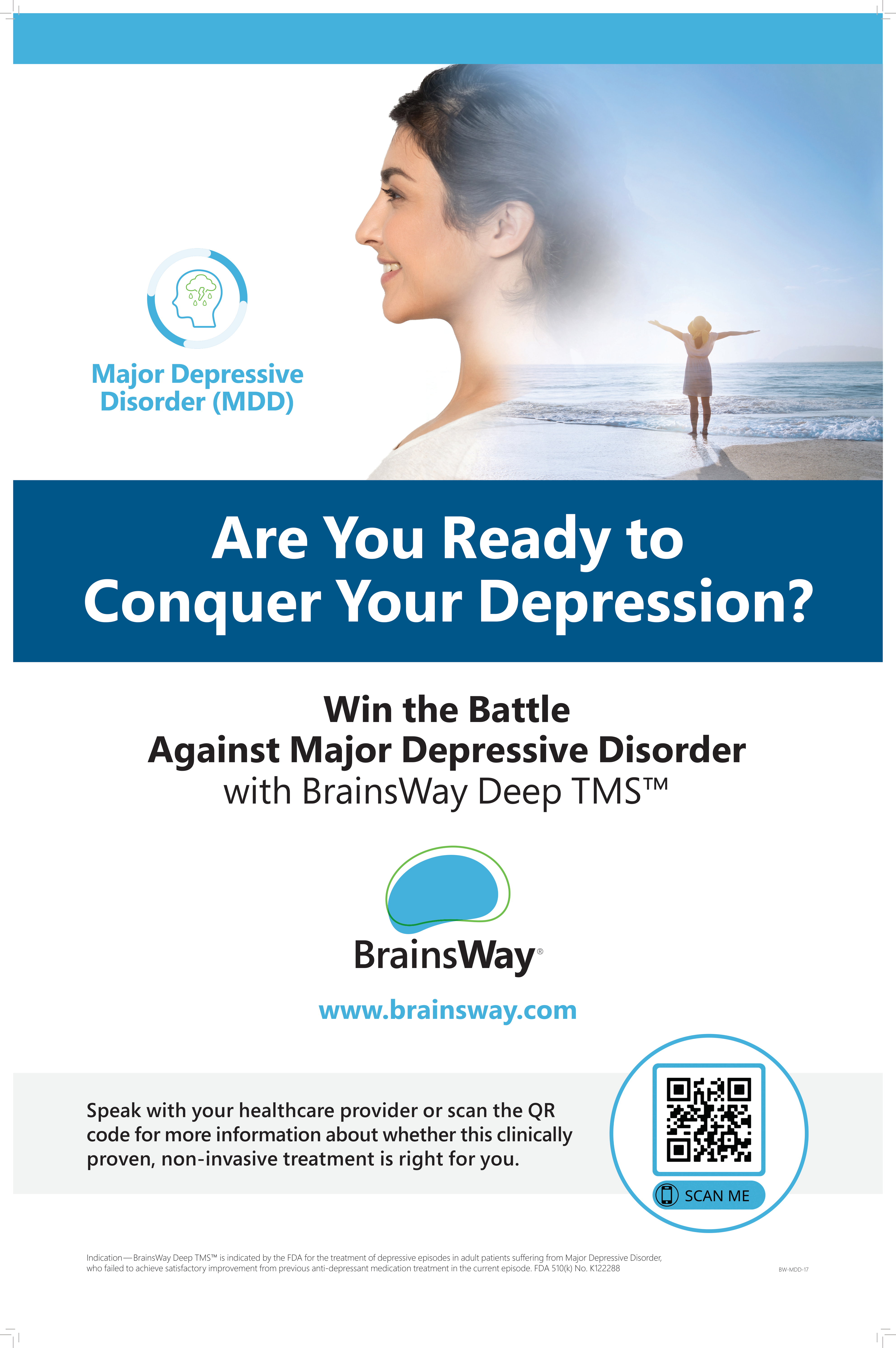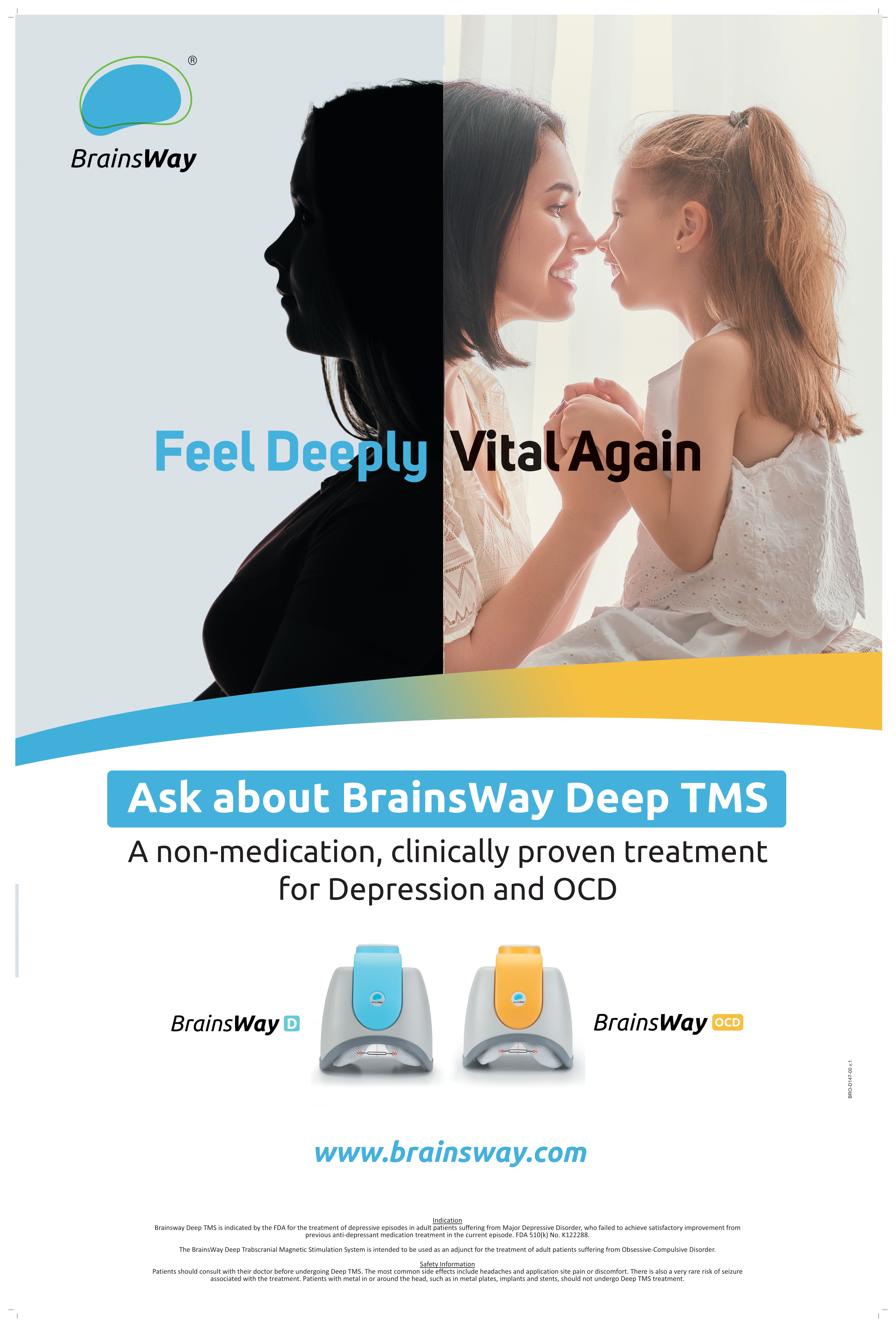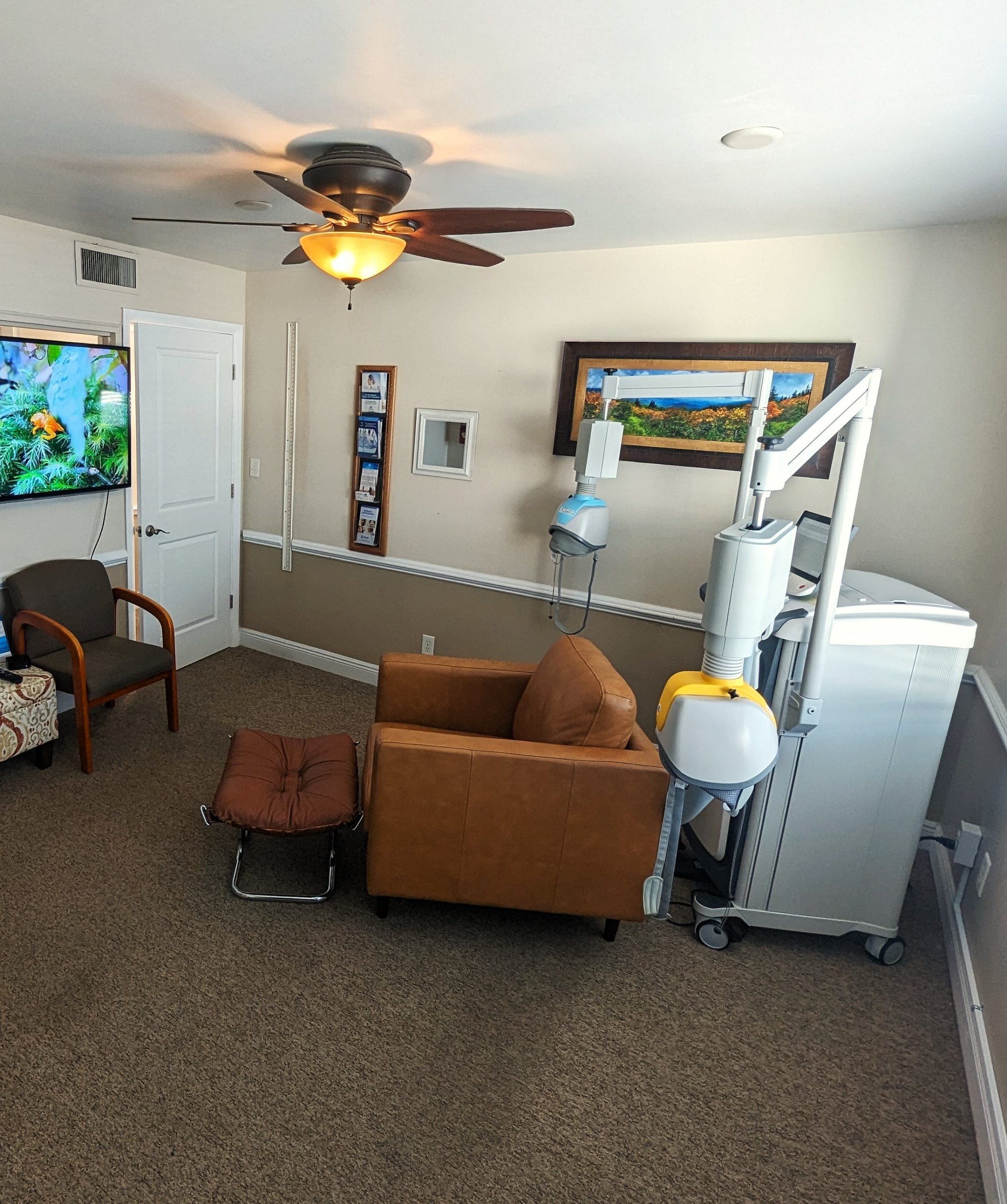TMS FOR MDD
Transcranial Magnetic Stimulation (TMS) is also used to treat Major Depressive Disorder (MDD). In TMS therapy for MDD, magnetic pulses are used to stimulate nerve cells in the brain region responsible for mood regulation. This stimulation is believed to help improve symptoms of depression by regulating brain activity.
TMS for MDD is typically used when other treatments, such as medication and therapy, have not been effective. It is considered a safe and well-tolerated treatment option for depression, with fewer side effects compared to some medications. However, like any medical procedure, there are some risks and potential side effects associated with TMS, such as headaches, scalp discomfort, or, rarely, seizures.
TMS therapy for MDD is usually administered over several sessions, with each session lasting about 20 to 30 minutes. The number of sessions can vary depending on the individual’s response to treatment.
It’s essential to consult with a mental health professional to determine if TMS therapy is a suitable option for treating MDD and to discuss the potential risks and benefits based on your specific situation.
TMS FOR OCD
Transcranial Magnetic Stimulation (TMS) is a non-invasive procedure used to treat various mental health conditions, including Obsessive-Compulsive Disorder (OCD). In TMS therapy for OCD, a coil is placed against the scalp near the forehead, and magnetic pulses are delivered to stimulate nerve cells in the brain region involved in OCD symptoms.
TMS for OCD is typically used when other treatments, such as medication and therapy, have not been effective. It is considered a safe and well-tolerated treatment option for OCD, with fewer side effects compared to some medications. However, like any medical procedure, there are some risks and potential side effects associated with TMS, such as headaches, scalp discomfort, or, rarely, seizures.
TMS therapy for OCD is usually administered over several sessions, with each session lasting about 20 to 30 minutes. The number of sessions can vary depending on the individual’s response to treatment.
It’s essential to consult with a mental health professional to determine if TMS therapy is a suitable option for treating OCD and to discuss the potential risks and benefits based on your specific situation.













